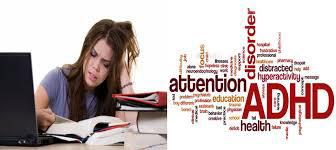
Drugs and psychotherapy can help teens with attention deficit hyperactivity disorder (ADHD) manage symptoms and improve in school, a new research review suggests, but adolescents still have treatment needs that are quite distinct from younger children.
Both stimulants and alternative medications can help reduce symptoms such as restlessness, forgetfulness and lack of motivation, the study found.
Psychotherapy that addresses issues like behavior, organization and social skills may not always ease symptoms but can result in better school performance, the study also found.
The trick is to figure out whether symptoms are severe enough to warrant medication, said lead study author Dr. Eugenia Chan, a researcher at Harvard Medical School and director of the ADHD program at Boston Children’s Hospital.
A challenge unique to teens is that when they do need drugs, doctors don’t always prescribe a high enough dose and these patients sometimes fail to take what’s prescribed, Chan cautioned.
“Adherence to medication treatment is an especially important issue for adolescents with ADHD,” Chan said.
“If they feel the medication is ineffective, causes significant side effects, or makes them feel different from their peer group, they are less likely to continue medication treatment as prescribed,” Chan added by email.
Even though about 12 percent of U.S. youth aged 12 to 17 have ADHD, much of the research so far has focused on younger kids, Chan and colleagues note in JAMA.
To assess the effectiveness of treatments for adolescents in particular, researchers analyzed data from 17 previously published small studies of medication and psychotherapy with a combined 2,668 teenage participants.
Among the drugs approved in the U.S. to treat ADHD, there’s more evidence to recommend extended-release versions of the stimulants methylphenidate (Ritalin, Concerta) and amphetamine (Adderall) than there is for other options, the review found. Two rigorous studies found each of these drugs effective in teens.
Two alternatives – atomoxetine (Strattera) and extended-release guanfacine (Tenex, Intuniv) – have one analysis apiece pointing to effectiveness in adolescents. A third, clonidine (Kapvay), hasn’t been tested in teens.
A limitation of the analysis is the dearth of high-quality studies on medication and psychotherapy specifically for teens, the authors note. The review also didn’t address stimulant addiction, which is a particular concern for adolescent patients.
A separate study in JAMA looked just at methylphenidate (Ritalin), the most commonly prescribed stimulant for ADHD.
This review of 185 trials with a combined 12,245 children and teens found the drug curbed ADHD symptoms but concluded there still isn’t enough data to determine exactly how much it helps.
“We are less convinced of its benefits and believe that our analysis highlights the low quality of studies underpinning the methylphenidate evidence,” said lead study author Ole Jakob Storebo of the psychiatric research unit, region Zealand in Denmark.
“The general perception of methylphenidate as an effective drug for all children with ADHD seems out of step with the new evidence,” Storebo added by email.
While the drug can improve a child’s quality of life, it also carries side effects such as loss of appetite and sleeplessness, Dr. Philip Shaw, an investigator at the U.S. National Human Genome Research Institute, said by email.
Some children can outgrow ADHD during adolescence, though, and this means teen patients on ADHD drugs require close monitoring to make sure they need to continue treatment, said Shaw, author of an editorial accompanying the study. Some children with attention problems also may not have ADHD or need drugs.
“We should focus our efforts on children who are really struggling at school at home and often with their peers,” Shaw added. “In these children, problems with attention, impulsivity and hyperactivity are having a major adverse impact on their development, preventing them from reaching their potential.”
Source: Reuters
 FR
FR EN
EN AR
AR








